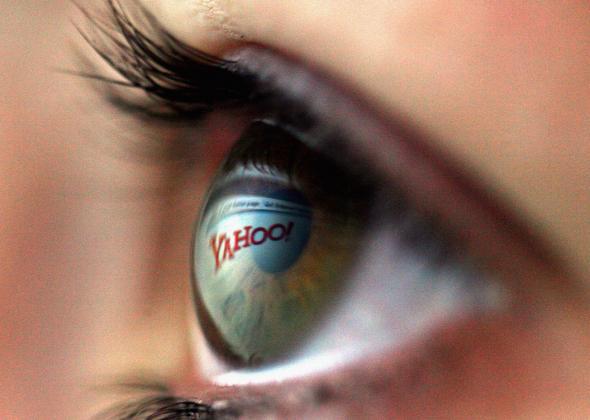Between 2008 and 2010, Britain’s surveillance agency, the GCHQ, worked with the NSA to spy on millions of Yahoo user video chats—even though the people were not suspected of any crime—and store millions of still images from the chats. The Guardian learned this from documents leaked by Edward Snowden.
The project, codenamed “Optic Nerve,” ran across a lot of sexually explicit or otherwise graphic imagery in the process of collecting and storing a huge amount of data. The Guardian reports that during a six-month sample of 2008, GCHQ spied on more than 1.8 million Yahoo users around the world. The GCHQ did not ensure that it was avoiding streams involving U.K. and U.S. citizens, and there aren’t U.K. laws that prevent agents from looking at this type of data about Americans without a warrant. The GCHQ apparently struggled to make decisions about how to handle and contain the graphic photos collected in Optic Nerve.
The question is: Why Yahoo?
A Yahoo spokesperson told the Guardian that the company had absolutely no prior knowledge of the surveillance.
We were not aware of, nor would we condone, this reported activity. This report, if true, represents a whole new level of violation of our users’ privacy that is completely unacceptable, and we strongly call on the world’s governments to reform surveillance law. … We are committed to preserving our users’ trust and security and continue our efforts to expand encryption across all of our services.
But that commitment might not be comforting to this chap:
Though there are bright sides:
Boing Boing points out that the leak also includes references to a GCHQ desire for expanding Optic Nerve into Xbox 360 Kinect cameras and other video streams. Who can we trust now?
Other documents have revealed GCHQ spying tactics that involve chat rooms and chat services, while Glenn Greenwald published a piece in the Intercept on Tuesday detailing the “dirty tricks” GCHQ uses to destroy people’s online reputations. He wrote:
Here I want to focus and elaborate on the overarching point revealed by all of these documents: namely, that these agencies are attempting to control, infiltrate, manipulate, and warp online discourse, and in doing so, are compromising the integrity of the internet itself. and project Optic Nerve is slightly less surprising in light of these other known actions. But that doesn’t make it anything less than shocking. If they’re going after a suspect, that’s one thing, but why would GCHQ agents even want to know what average people are doing on video chat. You don’t need to fill endless servers to know that it’s gonna alternate between blurry faces, cats, and genitalia.
So if GCHQ can see what we’re doing any time we’re using a video chat service (though the current status of the project is unclear), and it can use pretty much anything to slowly dismantle our online reputations, then … they have a truly terrifying amount of power. It brings whole new significance to the expression, “the camera loves you.”
Update, Feb. 27, 3 p.m.: This post has been updated with reactions from the tech community.
